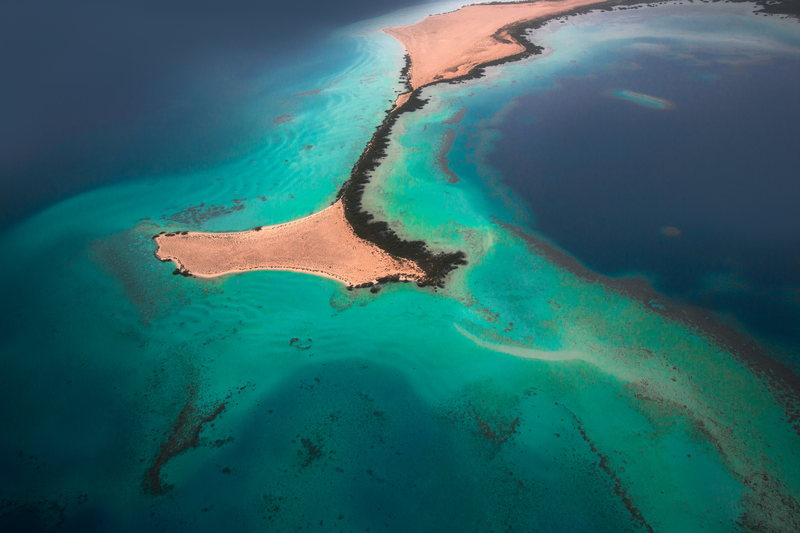"Brains for Brine Challenge" Launched to Find New Solutions to Protect Marine Life
Published on by Water Network Research, Official research team of The Water Network in Technology
- The competition will challenge participants to find new solutions to protect marine habitats from brine discharge
- Five potential winners will submit their proposals at Amsterdam International Water Week
- Deadline for submissions is 1st August 2019
The Red Sea Development Company (TRSDC) and King Abdullah University of Science and Technology (KAUST) have launched an international competition that challenges academics, scientists, engineers and the water industry to come up with new solutions to manage the disposal of brine as a waste product of water desalination in an effort to address one of the world’s great environmental challenges.

Image by Red Sea Development Company
The competition will have support and guidance from the Water Desalination and Re-use Center experts at KAUST, who will also be responsible for judging the entries. A microsite, where applicants can learn more about the initiative and submit their proposals, has also been created.
”Desalination is an extraordinary technology that has brought potable water to millions and helped advance regions that were previously dry. However, the waste product of desalination is brine, and there is no adequate solution available to minimize its impact on the environment,” said John Pagano , CEO of The Red Sea Development Company (TRSDC). “TRSDC has pledged to help create technological solutions to environmental problems. The launch of the Brains for Brine Challenge is an example of our determination to set a new standard in sustainable development.”
Applicants have until 1st August 2019 to submit their proposals. Five winners of the competition will present their solutions at Amsterdam International Water Week, where up to three prize winners will be eligible for a first prize of USD 10,000 each. As a longer-term plan, there is the potential for the winners to be supported through angel-investment and other mentoring opportunities, to ensure the solutions have as much chance as possible of success.
“I have no doubt that the lessons we learn from the application of technology to sustainable development on the Red Sea Project will be used in the future to benefit fragile ecosystems around the world,” said Dr. Carlos Duarte, Professor of Marine Science at KAUST and member of the TRSDC Global Advisory Board.
Population growth, economic development and rapid urbanization in areas with little freshwater resources have led to a continuously increasing discharge of brine into the world’s seas. The salty effluent is a by-product of efforts to extract fresh water from the sea. Existing methods to dispose of brine include pumping the solution back into the sea, or into catchment areas where the salt is harvested.
However, this salty water can pose a significant threat to marine life. The lack of natural fresh water in the Middle East means that the region has the highest concentration of desalination plants and produces over half of global brine effluent.
“Effectively managing brine discharge not only has a direct positive impact on our seas, but also allows us to recover valuable minerals. This lowers the costs of brine treatment, as well as reducing the environmental impact of the traditional harvesting of these minerals,” added Professor Hans Vrouwenvelder, Director of the KAUST Water Desalination and Reuse Center.
TRSDC has set itself a number of aspirational sustainability targets, including a 100 percent reliance on renewable energy, a total ban on single-use plastics and complete carbon neutrality in the destination’s operations. The Brains for Brine initiative seeks to minimize brine discharge, achieving 100% waste water re-use and identifying opportunities for brine reuse.
The Red Sea Project, one of The Kingdom of Saudi Arabia’s Vision 2030’s giga-project development initiatives, will deliver a unique luxury tourism experience of unparalleled diversity, while enhancing the destination's extraordinary natural wonders. The Project will be created around several unique and diverse treasures: an archipelago of more than 90 islands surrounded by thriving coral reefs; dramatic desert canyons and dormant volcanoes; and globally renowned heritage sites.
Visit: www.kaust.edu.sa/brains4brine for more information on the challenge and how to enter.
Source: The Red Sea Development Company
Media
Taxonomy
- Ecosystem Management
- Marine
- Environmental Impact Assessment
- Desalination
- Brine Discharge Modeling & Analysis
- Sea Water Filtration
- Sea Water Desalinisation
- Environmental Engineers & Consultants